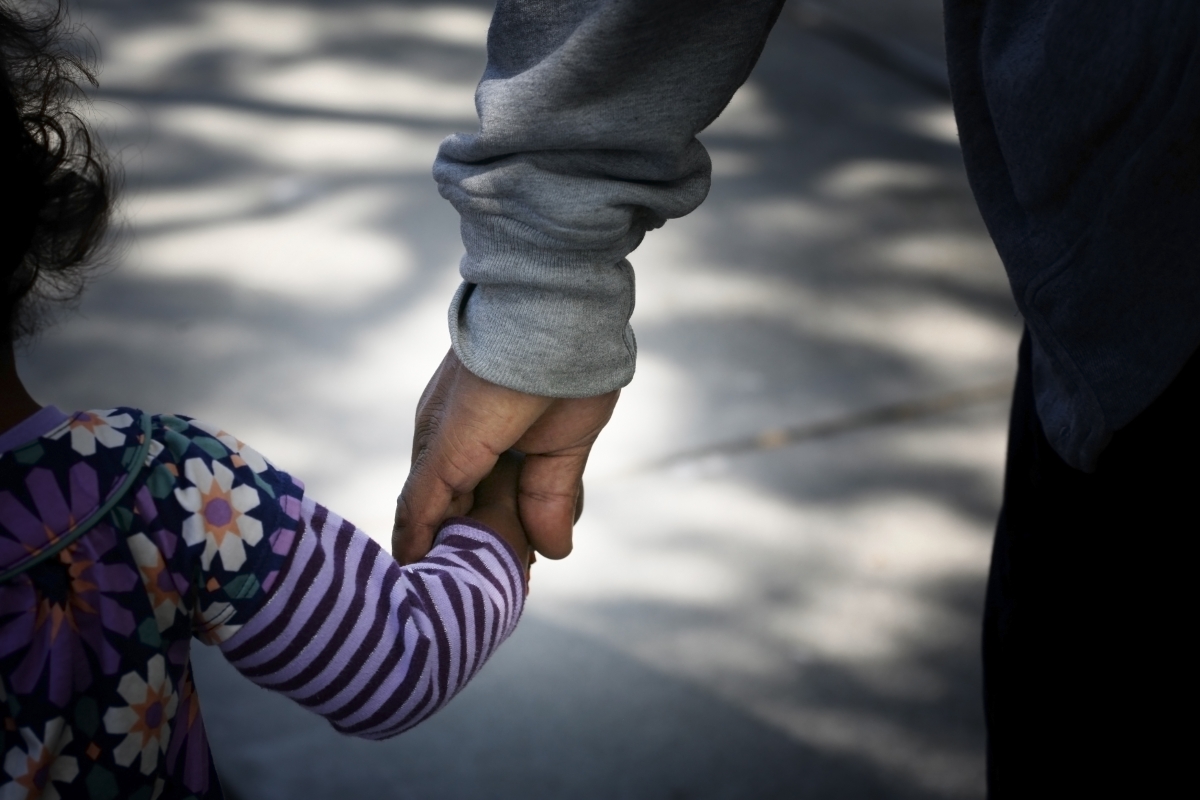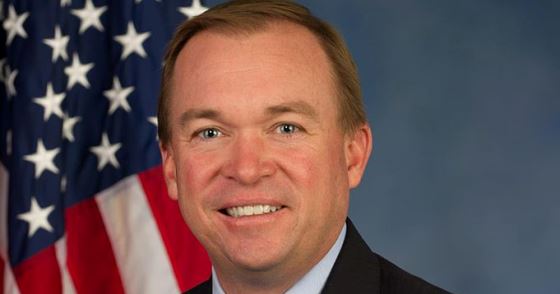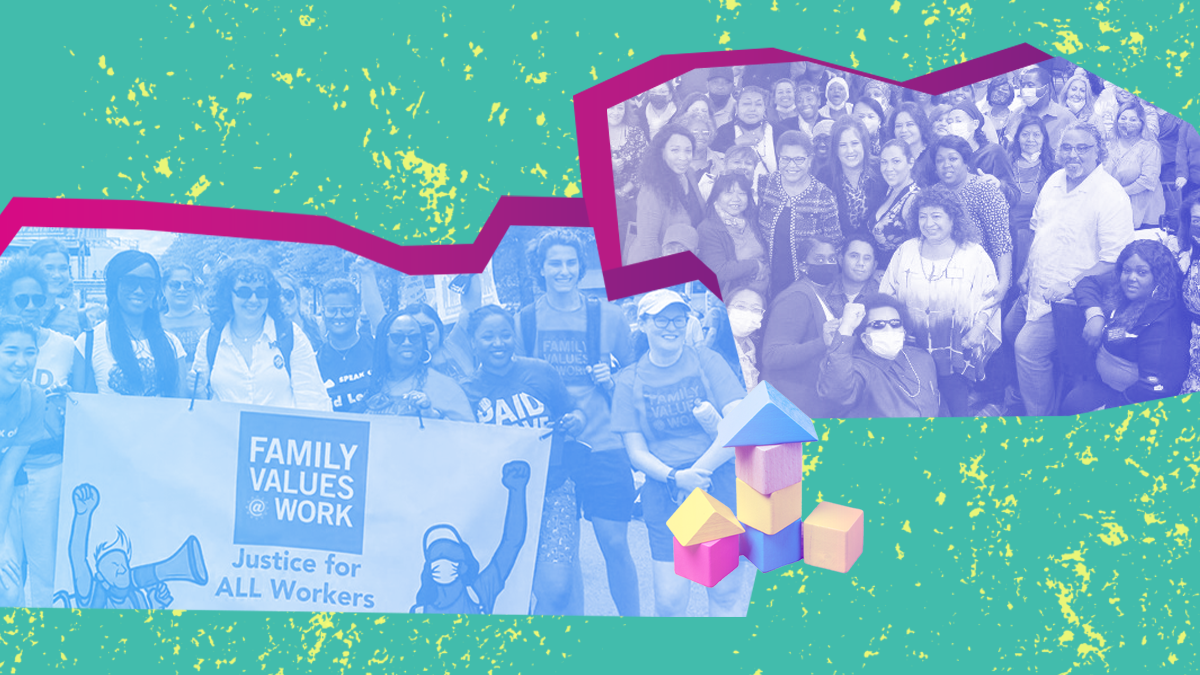Abortion rights, women of color, and LGBTQI+ people are under attack. Pledge to join us in fighting for gender justice.
The Hidden Early Care and Education Workforce

The Build Back Better Act holds promises for many in the early childhood education and care workforce. However, there is a subset of those involved in that work that may miss out on the fruits of the Build Back Better Act because they are not part of the formal, licensed child care system. These child care providers have been the backbone of many families but are often overlooked by the government and deserve more recognition. CLASP’s Tiffany Ferrette cites a report that reveals as of 2015, 321,000 child care workers are immigrants—or 18% of the early care and education workforce. This number could be higher considering many immigrants are unreported due to their immigration status.
I interviewed a child care provider that has been invisible in the eyes of the government for far too long. Elizabeth Cruz, a close relative of mine, has provided child care for non-relative families in the greater Washington D.C. area, without sick leave or paid time off and while caring for her own family, for 27 years. Her story, often unheard, echoes that of many immigrant women who are child care providers. She has missed spending time with her own children to care for others, including working even during the COVID-19 pandemic. Elizabeth is immunocompromised and put her life on the line to continue to provide care for a family she’s been with for eight years. Although she was able to play an important role for the family and is passionate about her work, she still felt unappreciated and that immigrant child care providers are treated inequitably.
Early Life
Elizabeth immigrated from Central America to the U.S alone at age 13 with the help of a coyote—someone who assists others cross the border in exchange for money. She was detained at the border due to her young age, then sent to California where family was waiting for her. A young, determined Elizabeth graduated from high school despite language barriers and a lack of guidance from family members. Instead of taking part in extracurricular activities, Elizabeth helped her grandmother financially by working part-time jobs after school and on the weekends. At age 19, Elizabeth became pregnant with her first child and worked hard to make sure that their needs were met. It wasn’t easy—she was a single mother, her family couldn’t help financially, and she didn’t trust the government to have her best interest in mind. Those were some of the hardest years of her life.
A Career in Home-based Child Care
Elizabeth learned about child care work through a friend and began her career in 1994 in the Washington D.C. area. . As a child care provider, Cruz reads, plays with children, takes them to after-school activities and appointments, and cares for their general well-being. It’s typical for her to have duties outside of caring for children, like housekeeping.
Despite working nine-hour days for six days a week and years of experience, providing child care has never been enough to pay the bills. A single mother of three, Elizabeth had to pay for child care for her own children—often family members or a friend would provide care—in addition to other bills, like rent and groceries. Elizabeth cleaned houses and took on other odd jobs to keep from living paycheck to paycheck. Her children are now adults, but she still struggles to keep up with rising costs of living.
Her compensation does not reflect the significant responsibility she takes to ensure the safety of the children:
“La responsabilidad del trabajo es enorme porque tengo que asegurarme de que no les pase nada a los niños. Si algo sucediera con los niños, yo sería 100% culpable y podría ir a la cárcel. Con tener tanta responsabilidad, mucha gente no quiere pagar el verdadero costo del trabajo.”
“The responsibility of this job is huge because I have to make sure that nothing bad happens to the children I care for. If something bad did happen, I would be 100% responsible and I could go to jail. With this large responsibility, I continuously find many families aren’t willing to pay the true cost of this kind of job.”
These feelings are compounded with Cruz’s experiences of some employers taking away her sick days, earned vacation days, and unpaid leave. During nine-hour work days—that sometimes extend to 12-hours—some employers don’t provide lunchtime or money for gas despite Cruz using her vehicle to take children to the park, appointments, or after-school activities. Additionally, her paycheck is docked if she’s late for work but does not receive additional pay if her employers are late. Cruz expressed a sense that a few employers try to take advantage of her and feels these experiences wouldn’t happen to a white employee.
Elizabeth has met other care providers in parks or in schools for pick-up, and heard disheartening stories from other Latinas who are afraid to speak out against low wages because of language barriers and fear that their immigration status will be used against them.
Cruz said if she could change anything, she would like more protections against these experiences and access to health care without paying high premiums.
What It Means to Be a Part of the Early Care and Education Workforce
Despite the hardships, Cruz still provides child care because it helps pay the bills, but most importantly, because she genuinely loves her job:
“Es algo muy especial cuidar los hijos de otras personas porque estás cuidando a los seres más preciados en los ojos de los parientes. Quisiera que los empleadores aprecian más a mi trabajo porque es un trabajo que requiere paciencia, empatía, y ternura. No es un trabajo que cualquiera debe de hacer solo por dinero, tienes que tratar a los niños como si fueran tuyos. Siempre he tratado los niños de otros como yo quisiera que los demás tratan a mis hijos.”
“Working with children is something that’s very special [to me] because I’m taking care of a parent’s most treasured being. I wish that employers realized the magnitude of my work because it requires patience, empathy, and tenderness. This isn’t a job that any person should get into just for the money, you have to treat children as if they were your own. I’ve always treated others’ children how I hope others would treat my children.”
Build Back Better holds great promise to positively impact the lives of so many families and early childhood workers. However, it must be implemented in a way to reach women like Elizabeth who are ignored. Immigrant child care workers are a crucial part of the backbone of our child care system, and it is long past time that they receive the recognition, respect, and compensation they deserve.





